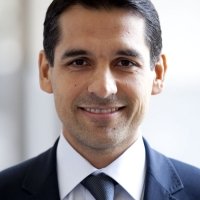The End of Multiculturalism in Europe? Migrants, Refugees and their Integration
Europe relies on immigrants to sustain economic growth due to the continent’s shrinking and aging population. Yet migrants are increasingly seen as importing risk: they are seen as competing for jobs with the growing number of unemployed; they are seen as a drain on state budgets which are in many places operating under austerity; they are seen as possible collaborators of global terrorist groups; or as refugees, they are reminders of instability in the neighborhood.
Thus, in spite of the economic need for migrant labor and a tradition of embracing multiculturalism, European electorates and their representatives in government have moved away from the more liberal and inclusive policies of the past. Not only have some European leaders pronounced the “end of multiculturalism,” but some governments have challenged the Schengen agreement, by bringing back border checks in response to the influx of refugees from North Africa and the Middle East.
A number of scholars and institutions have gathered data on public opinion, migrant mapping, and changing demographics in Europe, but there have been few occasions to compare their findings in order to create a rounded picture of the situation. To that end, the speakers on the first panel will present their most recent data and maps in order to offer a clearer picture of the reality. The second panel will look at state policies towards migrants, EU policies and legislation focusing on integration and non-discrimination. The third panel will bring together a panel of experts to discuss the implications of the changing attitudes towards migrants in Europe.
Speakers
Immigration Policy Center
Associate professor in the Department of Government at the University of Texas at Austin.

Croft Assistant Professor of Anthropology, Sociology and Anthropology Department, Croft Institute for International Studies, The University of Mississippi
Hosted By

Global Europe Program
The Global Europe Program is focused on Europe’s capabilities, and how it engages on critical global issues. We investigate European approaches to critical global issues. We examine Europe’s relations with Russia and Eurasia, China and the Indo-Pacific, the Middle East and Africa. Our initiatives include “Ukraine in Europe”—an examination of what it will take to make Ukraine’s European future a reality. But we also examine the role of NATO, the European Union and the OSCE, Europe’s energy security, transatlantic trade disputes, and challenges to democracy. The Global Europe Program’s staff, scholars-in-residence, and Global Fellows participate in seminars, policy study groups, and international conferences to provide analytical recommendations to policy makers and the media. Read more


Kennan Institute
The Kennan Institute is the premier US center for advanced research on Eurasia and the oldest and largest regional program at the Woodrow Wilson International Center for Scholars. The Kennan Institute is committed to improving American understanding of Russia, Ukraine, Central Asia, the South Caucasus, and the surrounding region though research and exchange. Read more


Urban Sustainability Laboratory
Since 1991, the Urban Sustainability Laboratory has advanced solutions to urban challenges—such as poverty, exclusion, insecurity, and environmental degradation—by promoting evidence-based research to support sustainable, equitable and peaceful cities. Read more


History and Public Policy Program
A global leader in making key archival records accessible and fostering informed analysis, discussion, and debate on foreign policy, past and present. Read more
